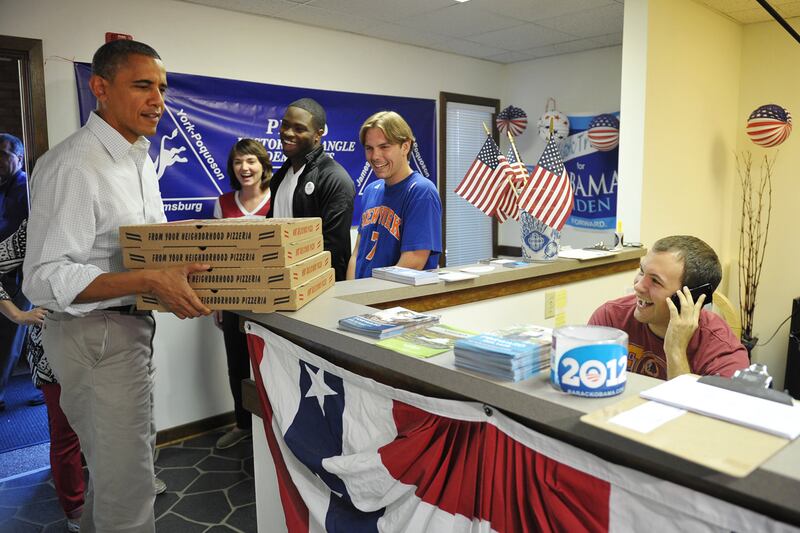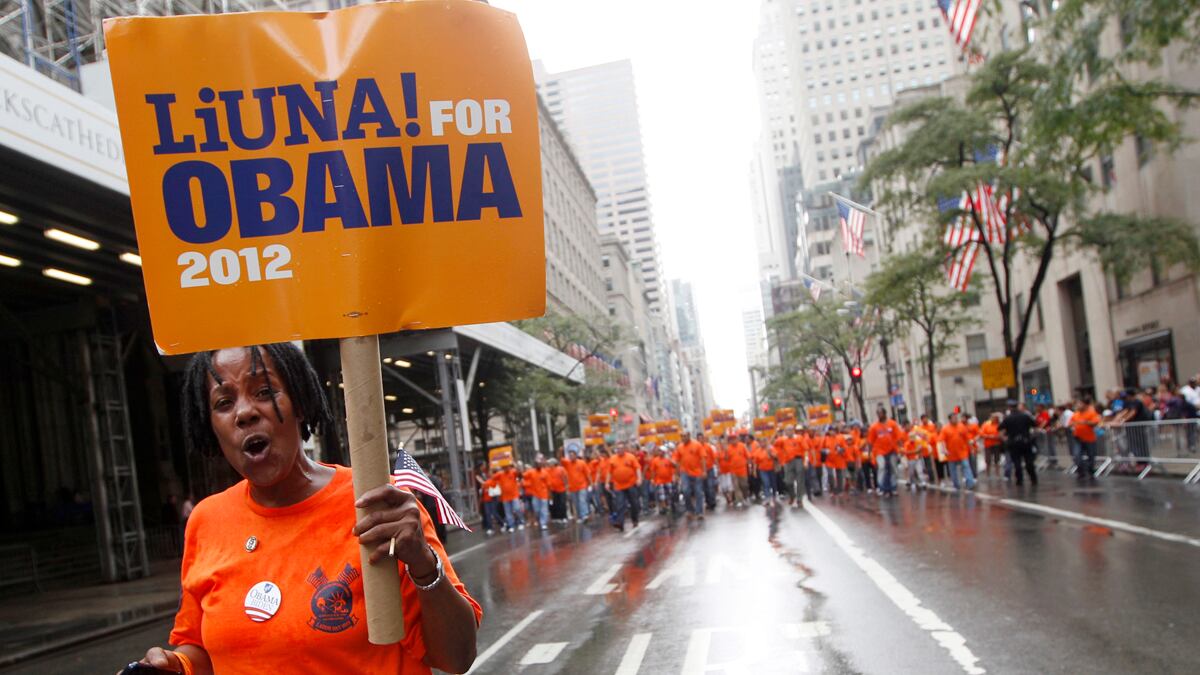No more debates. No more conventions. No more major speeches. Heck, Mitt Romney has signaled he won’t even be doing any more media interviews. Now, barring some unforeseeable cataclysm, it’s all over but the ground game.

Last time around, the Obama ground game killed. They out-hustled Hillaryland in the primary. In the general, Team McCain wasn’t even playing the same game.
Four years on, with the crazy-tight nature of the race making get-out-the-vote (GOTV) efforts all the more important, does Team O still have the mojo to pull this one out? Even ignoring the looming Frankenstorm that had the entire eastern seaboard hunkered down—and has prompted some districts to suspend early voting—a couple of ominous factors signal that it won’t be so easy this time around.
First, Republicans claim to have learned their lesson and have vowed to bring their A game. Most of the mobilization effort is being handled, not by the Romney campaign per se, but by the RNC and groups like Karl Rove’s American Crossroads. Thus far, reports from field offices and surveys of boots-on-the-ground suggest that the Dems still have the edge. But who knows what GOTV voodoo is being worked under the radar.
More ominously, it’s one thing to turn out voters for the political messiah Obama was seen to be in 2008. Today: the thrill is gone, baby. Ginning up enthusiasm for the Barack of 2012 has been a much, much tougher haul.
But while the general electorate may be ambivalent about the outcome on Nov. 6, one key player is not: organized labor. As SEIU president Mary Kay Henry assured me: “We are fired up and ready to go!”
Henry herself is clearly en fuego. By Oct. 25, she had already made campaign-related stops in 19 cities this month, including Columbus, Toledo, Las Vegas, Milwaukee, and Detroit. The rest of SEIU’s leadership team has been following similarly brutal travel schedules, while rank-and-filers are being recruited by the thousands for the campaign home stretch. (Goal: field 25,000 volunteers for the final four days of the race.) Members from safe states are being shuffled into battlegrounds like Colorado and Nevada. Targeted outreach efforts are underway to Latino and African-American communities, including special teams aimed at combatting efforts to intimidate minority voters or suppress turnout.
To be sure, labor is always central to the Democratic ground game. But the current frenzy is just the tail end of what has been more than a year and a half of nonstop, single-minded political obsession on the part of pretty much the entire labor movement. For that, President Obama can thank Wisconsin Gov. Scott Walker and his GOP compatriots who came to power in 2010.

“In 2010, people voted for a large number of Republican governors who campaigned on creating jobs,” explains Michael Podhorzer, political director for the behemoth AFL-CIO. “Almost the first thing those governors did was come after labor unions in Wisconsin, Ohio, and so forth. That really galvanized the labor unions.”
Since the midterms, there has been “an unprecedented amount of legislation” aimed at weakening unions, confirms Richard Hurd, a professor of labor studies at Cornell University. “In response to that, labor has coordinated its effort over the past two years in a way it had not been able to before that.”
This is no mean achievement. Prior to 2010, notes Hurd, the movement was plagued by infighting and turf wars and bitterness—especially since 2005, when several unions, including the SEIU, underwent a nasty split from the AFL-CIO. One enduring point of conflict: whether to focus resources on organizing or on political activism.
The Republicans’ assault has put all those disagreements on the back burner, says Hurd. “It has really raised the consensus that political action is extremely important for the future.”
Practically speaking, he adds, the movement has spent the past 18 or so months learning how to work together more effectively and building up networks in multiple states. Hurd, who has been watching the movement for a quarter century now, professes himself to be “surprised and something like impressed.”
Has Obama disappointed the movement now and again? Of course. Certainly the decision to hold the Democrats’ nominating convention in the right-to-work state of North Carolina pissed off plenty of labor folks. But nothing focuses the mind like an existential threat.
And so union leaders like Mary Kay Henry will spend the next week or so leap-frogging from one swing state to the next, while their troops work the phones and walk the neighborhoods and swarm the Internet.
Obama may not be perfect, but the Republican gains of 2010 gave labor a glimpse of a future that it is fiercely determined to prevent.
As Podhorzer puts it, “They kicked the hornet’s nest.”





